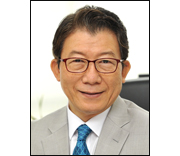-
[November 29. 2016 Korea times] System reforms improve ombudsman
- Date : 2016.12.12
- Views : 732
System reforms improve ombudsman

By Jeffrey I. Kim
Last week a team of nine diplomatic officials from Thailand visited the Ombudsman’s Office to ask for consultation on the FDI grievance resolution system. On October 13, King Bhumibol Adulyadej of Thailand died after ruling the country for over 70 years. The King received great respect from his people for having devoted himself to helping the country become stronger.
Thailand now needs to attract foreign investment. The country wants to invigorate its economy by attracting as many foreign investors as possible. They know what incentives they can provide for foreign investors but they know little about how to encourage foreign companies to stay on a longer-term basis. They want to know about the Korean ombudsman system which has a world-wide reputation for providing highly sophisticated after-care services for foreign investors.
There have been many other countries trying to emulate the Korean ombudsman system. As countries extend their economic territory by establishing FTA relationships with other countries, the ombudsman’s role is becoming more important. The China-Korea FTA was the first FTA that adopted the role of the foreign investment ombudsman.
Article 12.19 of the FTA stipulates that the trade ministry of each government should designate contact points for resolving the grievances of foreign investors. These contact points include each country’s investment promotion agency. For Korea the contact points are KOTRA (Korea Trade and Investment Promotion Agency) and the Foreign Investment Ombudsman Office, and for China, Investment Promotion Agency of the Ministry of Commerce.
Brazil has recently started the operation of its own ombudsman unit after consultation with us. Before establishing their ombudsman system, they asked us hundreds of questions. The key questions include: the legal status of the ombudsman, the political independence of the ombudsman, the organization of the ombudsman system, the ombudsman’s relationship with KOTRA, the main activities of the ombudsman, and the scope of the ombudsman’s legal authority and rights. The answers to these questions are all stated in the brochure and the booklets but they wanted to hear explanations directly from us.
The fact that we can now answer all their questions related to the Korean ombudsman system does not mean that our system was right and impeccable from the beginning. It has continuously changed and evolved since its foundation in 1999. It will continue to change as Korea’s economic conditions and global economic environment change with time.
Very recently the Korean ombudsman system has gone through a couple of important reforms in operation and management. These specific operational reforms are seldom introduced in the published brochure. But it is very important and valuable information to share with the countries which have adopted the Korean ombudsman system.
One major reform is to change our grievance-collection system from ‘passive call-awaiting’ to ‘proactive reaching out.’ Previously nine professional counselors, called “home doctors,” simply waited for emergency calls from 4,000 foreign-invested companies. But the home doctors seldom received emergency calls from them. Even when they did receive a call, it was too late. To prevent that from happening, we split the nine home doctors into a few groups and have them select larger firms and try to directly collect their grievances before the problems become critically serious. Each time the home doctors make a group visit to client companies, the Ombudsman leads the group.
Another operational reform is to use the super-high-level professional consulting service from outside. These days, foreign firms with high technology frequently suffer from grievances because of the complexity of the issues involved. For the same laws, decrees, and rules, different government agencies may have different interpretations. Consequently foreign investors get caught and end up being subject to heavy tax penalties and fines. Often they wrap up their investment and leave the country.
To prevent these unfortunate episodes, we have organized a senior advisory group consisting of renowned scholars or even retired professors and ex-government officials in various fields. The advisory group plays a major role in addressing complicated issues that go beyond the capacity of our internal consultants comprising of lawyers and accountants, and other specialists. When necessary, we convene an advisory group meeting by professional field.
With these two system reforms, we can collect and resolve foreign investors’ complaints and grievances much earlier than before. In addition, we can provide higher-quality services for foreign investors at smaller expenses by utilizing the expertise and wisdom of the senior advisers.
http://www.koreatimes.co.kr/www/news/opinon/2016/11/198_219071.html










